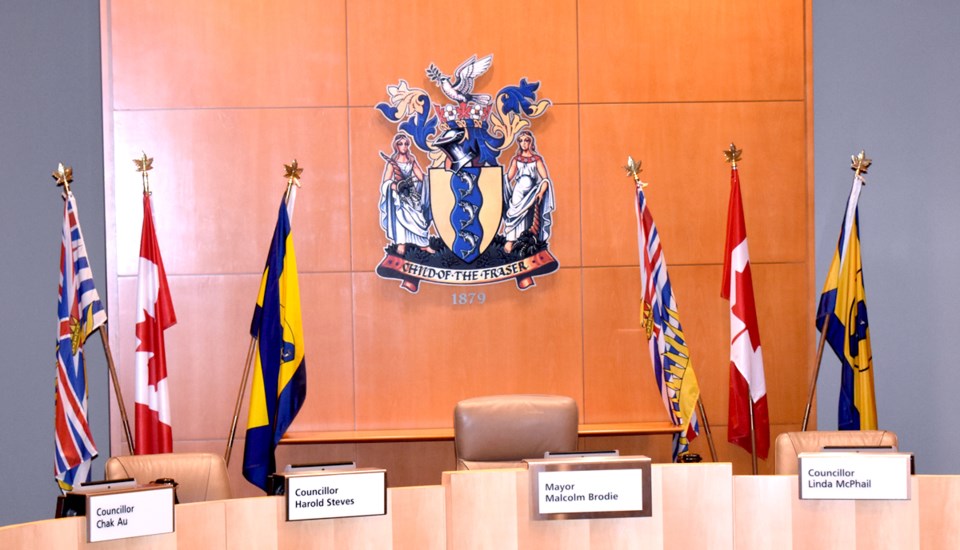Richmond city council turned down a fill application for a Richmond property in the Agricultural Land Reserve, despite engineering and agrologist reports claiming the land needs to be raised for vegetable farming.
The owners of the ALR property at 21800 River Rd. asked council to forward their application to the Agricultural Land Commission, which has the final say on bringing fill into the ALR. The owner wants to add up to two feet of topsoil to improve the soil quality, which currently has “water issues,” according to a staff report.
Steve Easterbrook, who sits on the city’s Agricultural Advisory Committee, also argued that the proposal could reclaim some Richmond farmland.
Regardless, the majority of councillors, including Coun. Harold Steves, refused the application.
The issue of dumping fill, material that can be made up of soil, woodwaste and other products, on Richmond farmland has been contentious in the past. Some farmland owners have been accused of degrading soil quality by allowing construction and other waste to be dumped on their land — for a price.
Although, in this case, the fill is topsoil from Vancouver, Steves still questions its quality.
“Vancouver doesn’t have any topsoil, Vancouver soil is gravel – our soils are clay soils,” Steves said, adding “they call it topsoil because they take it off the top.” Only about 10 per cent of its soil is possibly topsoil, he said.
Regarding the “water issues” as a result of the property’s low elevation, he pointed to examples where farmers have built berms and swales and installed pumping systems to address the flooding issues faced by the River Road property owner.
Coun. Linda McPhail, who at council argued in favour of the application being forwarded to ALC for review and a decision, pointed out the property has never been farmed and now a “bona fide farmer” wants to farm it.
“The applicant has done everything right, has fulfilled all the reporting requirements, specified by the city, there is an agrologist’s report, a civil engineering report, a soil remediation plan, so I feel that since it satisfies all our requirements that we should allow it to go forward to the ALC,” McPhail said.
Coun. Alexa Loo compared the farm to the city-owned Garden City Lands. Answering her questions, staff explained that 31,000 cubic metres of soil was brought to that property “thousands of truckloads” — and 21,100 cubic metres was for the Kwantlen farm. The city received $450,000 for taking in the fill.
Without the fill, the Garden City Lands would be limited to non-edible crop production, staff explained to council. However, city staff said the two situations are not comparable because the soil quality is not the same.
Coun. Michael Wolfe said the city has heard “loud and clear” that farmland is for farming, and with so much damage that fill can do to farmland, he couldn’t support the application.
“Although perhaps all the right steps have been taken by the applicant, it’s the public’s desire to ensure that what’s happened in the past won’t continue,” Wolfe said.
Richmond Mayor Malcolm Brodie supported the application and questioned why, if council wants to support farming, they wouldn’t support this application instead of making it “impossible” to farm.
“It’s one thing to be restrictive of what we’re doing in the (ALR), it’s another thing to make it impossible for people to do what you want them to do,” Brodie said, adding this application for fill was a “moderate proposal.”
“I just don’t know what people want these people out on River Road to do — you’re taking an area that can’t be farmed now or minimally farmed now and make it more productive, isn’t that what we want?” he said.
In the end, the application was rejected with the mayor, McPhail and Loo voting in favour of it.



